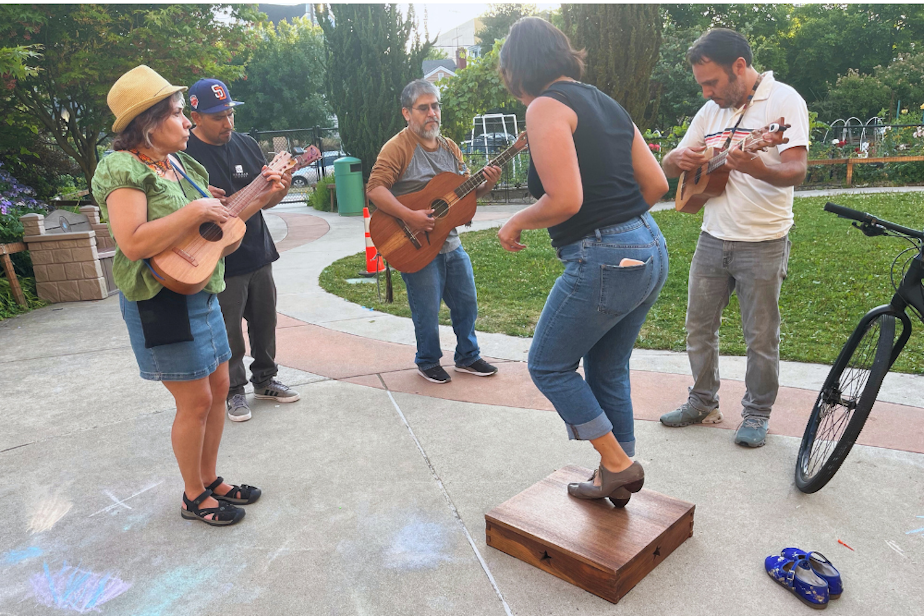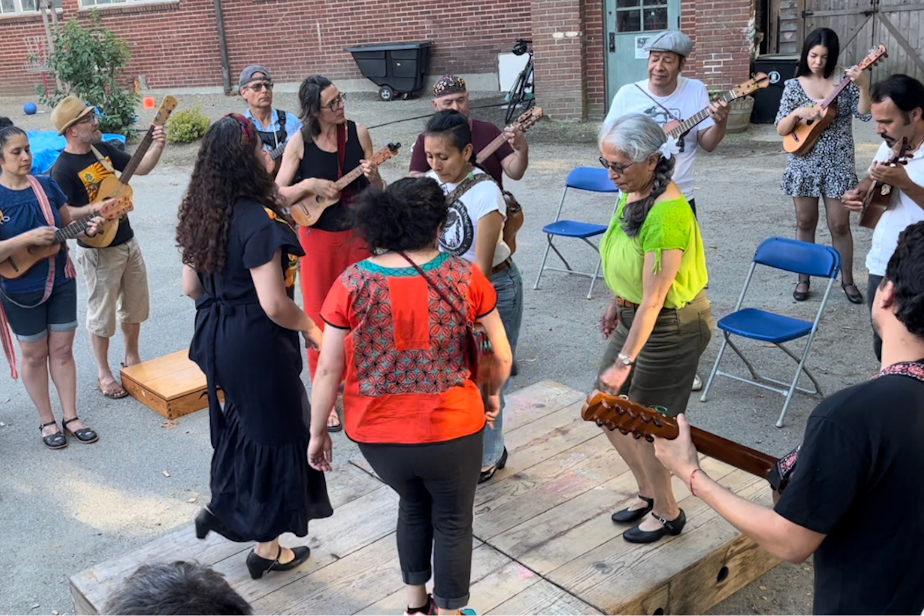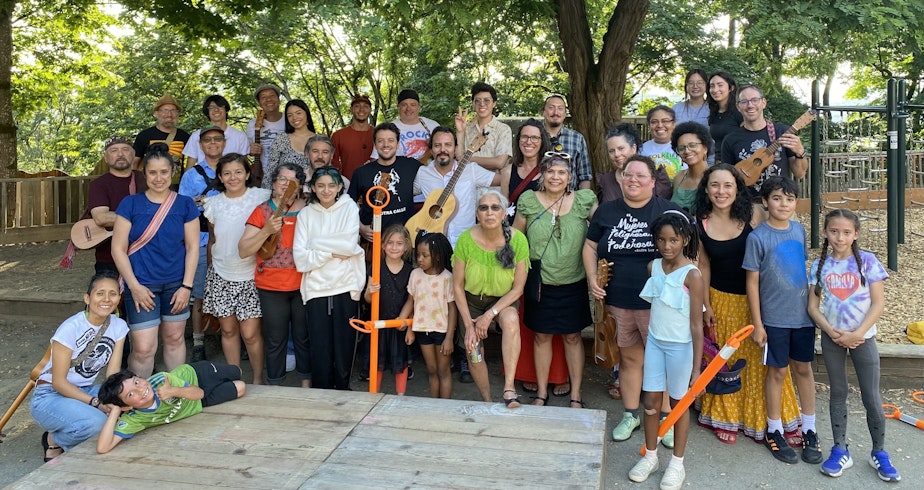Building community is 'an act of social justice’ at the Seattle Fandango Project
RadioActive’s Vivi Cardenas-Habell says the Seattle Fandango Project played a key role in her upbringing. But she didn’t fully appreciate it until Covid took it away.
[RadioActive Youth Media is KUOW’s radio journalism and audio storytelling program for young people. This story was entirely youth-produced, from the writing to the audio editing.]
I
've spent basically every Saturday since I was 4 going to music workshops with the Seattle Fandango Project.
The workshops are held in community centers or at someone's house. They are always filled with people chatting and enjoying food, and little ones running around giggling. And of course, there's the music: people strumming jaranas gathered around dancers on the tarima.
The music is what brought us together: a group that varied across many identities like age, ethnic background, immigration status, and class.

 1 of 3
Iris Viveros Avendaño doing zapateado, percussive dancing, on the tarima while other Seattle Fandango Project members play Son Jarocho music.
1 of 3
Iris Viveros Avendaño doing zapateado, percussive dancing, on the tarima while other Seattle Fandango Project members play Son Jarocho music.
But for my mom, Michelle Habell-Pallán, it wasn’t just about the music.
"Even more important was I wanted to give you a sense of a larger community of cousins and aunts and uncles, and getting together with food and music," Habell-Pallán said.
My parents and I don’t have extended family in Seattle, so SFP became our Seattle family. It was our normal — our routine — for almost 10 years, until the pandemic hit.
“It was like a limb had been chopped off of our bodies," my mom said, "because we had grown to understand ourselves in relation to this community."

 1 of 3
Members of Seattle Fandango Project at an outdoor gathering in the back of the Seattle Amistad School. Several members are dancing on the tarima.
1 of 3
Members of Seattle Fandango Project at an outdoor gathering in the back of the Seattle Amistad School. Several members are dancing on the tarima.
In the beginning of the pandemic, I didn’t feel exactly the same way. I mean, I finally had my Saturdays back! But after months of being disconnected from SFP, I started to feel a sense of deep loss. And when it hit me, it hit me hard. For the first time, I felt how special SFP was. But I couldn’t quite verbalize it for myself.
So, I talked to Iris Viveros Avendaño, a founding member of the Seattle Fandango Project and a "bailadora," or percussive dancer.
"Women have a very important task in the fandango practice," Viveros Avendaño said. "Women are usually not brought into the narrative of percussionists, and in this practice, you're not only a percussionist, but your percussion is part of the art to building community, and is at the center of it.”
Hearing that, I realized how much SFP's feminist values and practices had shaped my beliefs. And I saw why this community was so important to me.
Because, even outside of the pandemic, the world can feel like an isolating place, no matter who you are.
“Building community is an act of social justice" Viveros Avendaño said. "Because we live in a society that prioritizes individualism. And Fandango, to a certain extent, disrupts individualism and perfection through love and community."
And that's exactly what SFP is! Beautifully summed up, it’s disruption through love.

Talking to Viveros Avendaño, I realized SFP is held together by more than music. You have a responsibility when you’re part of a community like this. Chosen family shouldn’t be idealized — it’s up to every community member to show up and commit to doing the uncomfortable parts, too.
Especially now, because SFP is rebuilding. At the same time, I have to say goodbye because I'm going to college. While I can't take my Seattle family with me, I can take all the lessons and love.
This story was produced in a RadioActive Youth Media introductory workshop for high school-age youth. Production assistance by Brooklyn Jamerson-Flowers. Edited by Mary Heisey. Prepared for the web by Kelsey Kupferer.
Find RadioActive on Instagram, TikTok, YouTube and Facebook, and on the "RadioActive" podcast.
Support for KUOW's RadioActive comes from the Bill & Melinda Gates Foundation Discovery Center and BECU.
